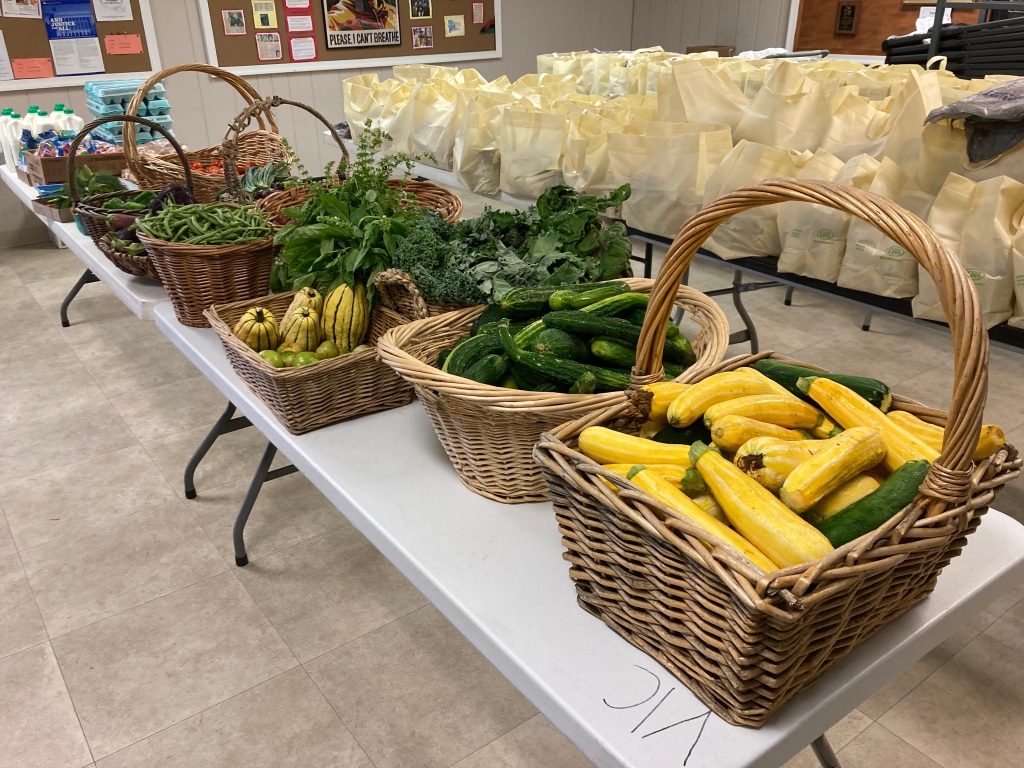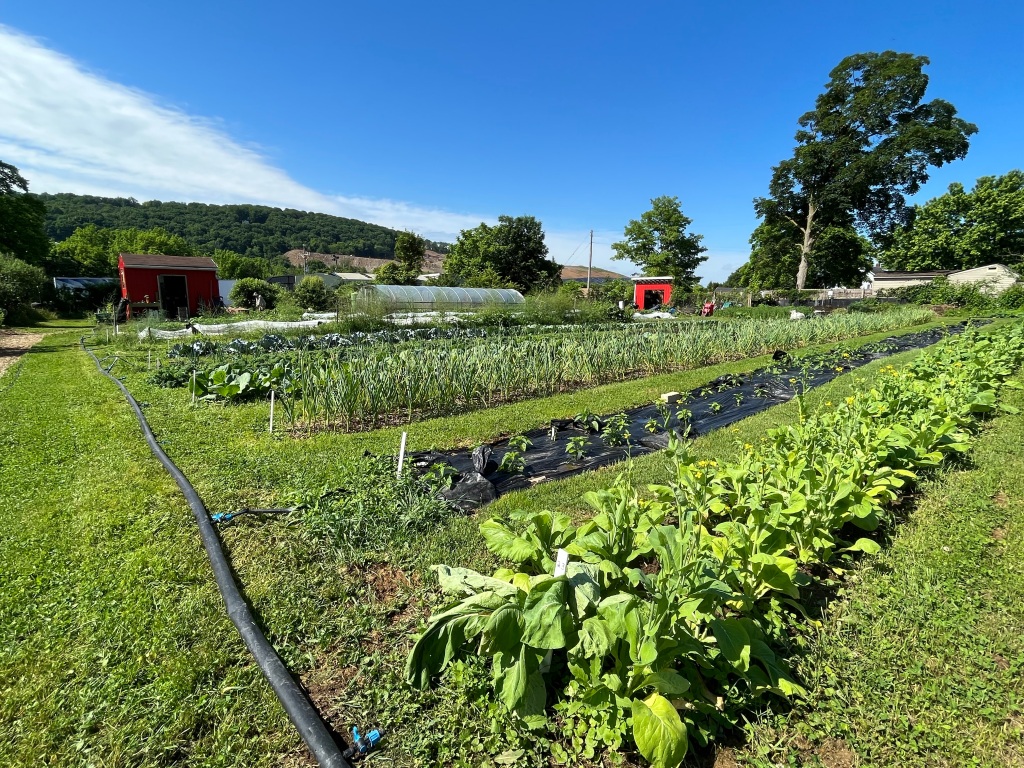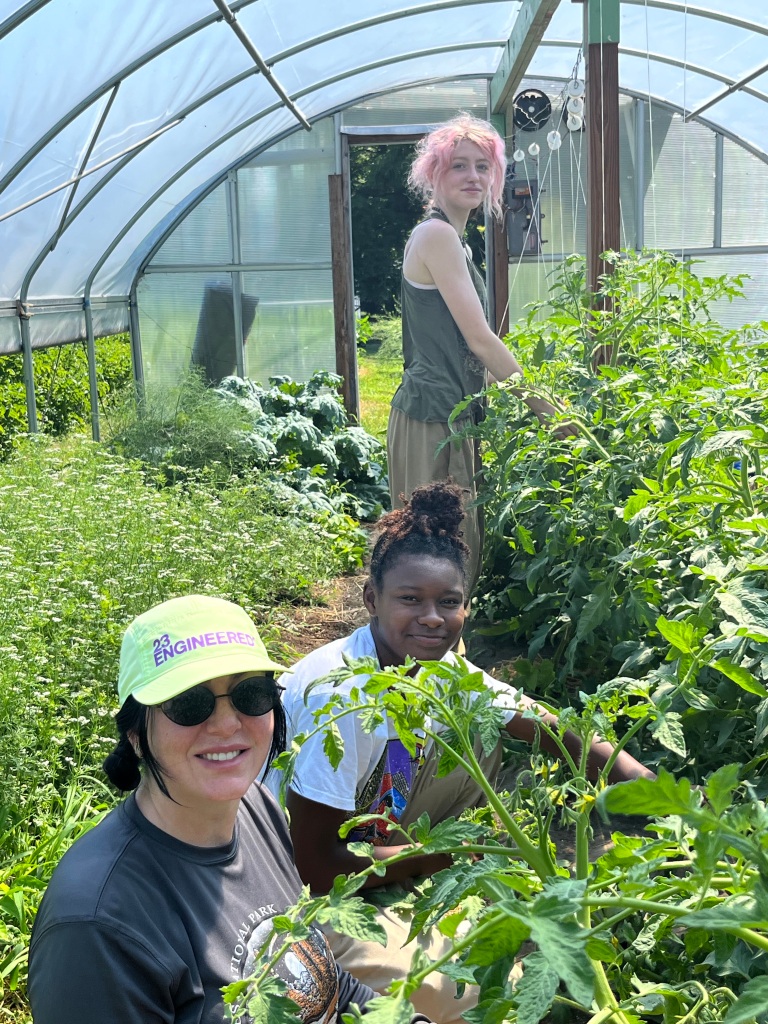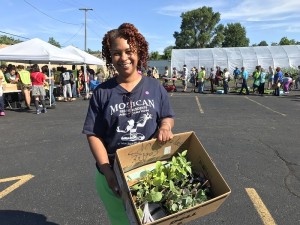By Charles Elliott
Supported by BGR grants since 2018, the Easton Urban Farm (EUF) is a remarkable success story, providing fresh produce to low-income urban residents who struggle to afford basic necessities. Located in the City of Easton, a small historic town nestled within Eastern Pennsylvania’s Lehigh Valley, EUF serves an often marginalized population facing financial pressure from high rent increases, inflated food and gas prices, and reductions in governmental assistance such as the Supplemental Nutrition Assistance Program (SNAP/Food Stamps). Access to fresh fruits and vegetables is limited in Easton’s Southside and West Ward “food desert” neighborhoods, and the EUF helps fill this gap with its food pantry and direct distribution of fresh produce within the community.

The EUF is a program of the Easton Area Neighborhood Center, a non-profit organization serving area residents since 1967, whose mission is advancing social and economic justice and advocating for the rights of residents with limited resources. In addition to its food assistance, the Neighborhood Center offers a transitional housing program for homeless and “near homeless” families, and rental and utility assistance.
With help from BGR grants and the farm’s excellent stewardship of the land, EUF has dramatically increased its yield from 6,500 pounds of fresh produce in 2019 to more than 11,000 pounds (!) in 2021 on its 5/8 acre farm. Fresh and nutritious food is grown with organic practices, without chemical inputs.

The program year starts early in the year, in February, with an annual community “seed swap” that encourages community cohesion and recruitment of new volunteers. The farm soil is prepared for planting, and seedlings are planted as early as weather permits. The day-to-day farming work is performed by volunteers, guided by a skilled master gardener. The master gardener not only guides the work of the farm but provides training in best practices for residents who want to create their own vegetable gardens to supplement their food supply at low cost.
The early crops are ready for harvest by late April, and this produce is offered to area residents through the Center’s food pantry. From mid-June to mid-August, the farm’s produce is distributed through multiple outlets: Lafayette College’s Vegetables In the Community (VIC) program, the Salvation Army, the Easton Area Community Center’s programs for senior citizens and children; and Harlan House (a high-rise senior citizen public housing building). From mid-August to the end of the year, the produce is distributed through the Center’s food pantry. In late fall, the master gardener plants cover crops to restore the nutrients in the soil and reduce the risk of disease.
This past year, the farm assisted 1,479 residents through just its food pantry distribution alone, including 555 children, 796 adults (18-65 years of age) and 128 senior citizens. The demographics of these beneficiaries reflected the wide racial and ethnic diversity of the community, including White, Hispanic, Asian, African-American, Pacific-Islander, and Indigenous People.
Beyond its direct food assistance, EUF is also a force for social good. It provides a place for community socializing and organizing. It has constructed wheelchair-accessible raised beds for the use of residents with limited mobility, and has received a County grant for a handicapped-accessible path to allow expanded access to farm programs. In 2021, the farm started a youth internship program, providing opportunities for five high school students to work on the Farm for eight weeks, developing good work habits and learning about farming. In addition, the program introduces low-income youth to other career opportunities, with a goal of encouraging them to dream beyond the horizons they may have envisioned for themselves.

The personal stories of EUF’s beneficiaries are poignant reminders of the difficulties faced by some in our communities through circumstances beyond their control and the importance of acts of compassion and charity.
Sue, her partner, and newborn son were relatively new arrivals in Easton, who found themselves homeless. The family was admitted in The Neighborhood Center’s transitional housing program. But soon thereafter, it emerged that the relationship between the couple was abusive and unsustainable. After a period of unsuccessful counseling, Sue’s partner was asked to leave. As a stay-at-home mother with an infant, the departure of her partner left Sue without any income. The Center arranged for food to be delivered to Sue from the food pantry to cover the gaps between SNAP monthly allotments. She was willing to work but was caught in the Catch-22 of not qualifying for subsidized childcare without a job and not being able to work without subsidized childcare. The Center’s staff was able to successfully secure subsidized childcare for Sue, thus breaking this vicious cycle, and soon she was gainfully employed. Fresh produce from EUF enabled Sue and her infant to thrive during this difficult period with nutritious fresh produce she could rely upon.
Bob is a regular participant in the food pantry. He lives alone in a small apartment and receives a very modest monthly Social Security disability benefit. He is limited in his ability to work by significant intellectual impairments. Recently, his rent was increased from $600 to $650, and his landlord announced his intent to increase the rent even further to $900 a month as of January 2023. Bob was facing hugely increased housing costs caused by Easton’s overheated rental market, and the proposed monthly rent was more than Bob’s disability benefit. While a staff member was able to get the future rent increase reduced to $700 a month, Bob’s financial situation remains difficult and underscores the importance of the fresh produce supplied by EUF to prevent hunger and malnutrition.
The BGR grants provided to EUF have helped to offer a lifeline to disadvantaged Easton-area residents, securing healthy food for children and elderly alike, and changing their lives for the better.

